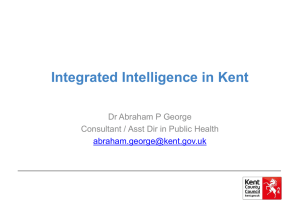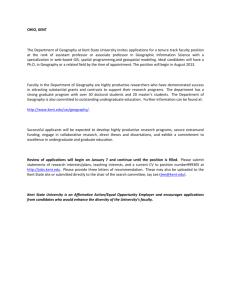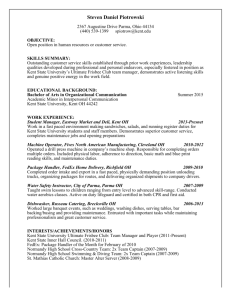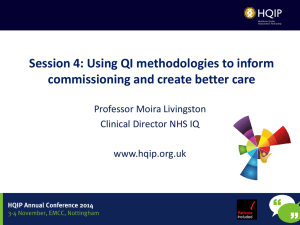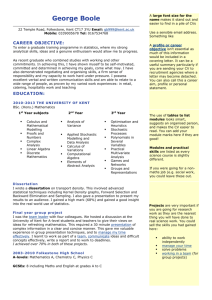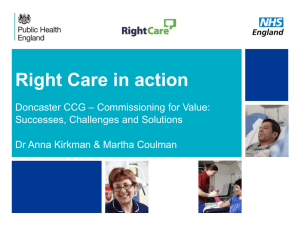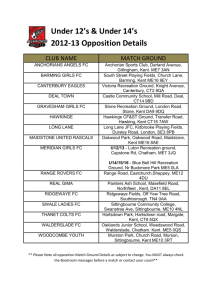- Integrated Care and Support Exchange (ICASE)
advertisement
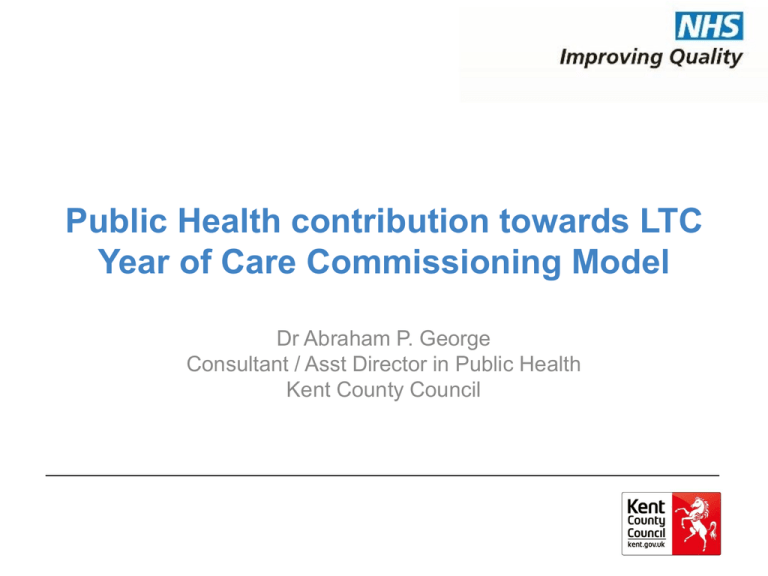
Public Health contribution towards LTC Year of Care Commissioning Model Dr Abraham P. George Consultant / Asst Director in Public Health Kent County Council What is the LTC Year of Care Commissioning Model? “Shifting the focus away from reactive episodic care, towards a proactive person centred capitated funding model, irrespective of organisational boundaries and disease based pathways of care” What does the programme involve? - Currently in Year 3 5 sites across England Multi-centre hospital bed audit on ‘RRR’ Analysis of service utilization of multi-morbid patients across all care settings Test-proof / shadow new currencies Evaluate local integrated care models Data quality improvement Design local data sharing arrangements Local Profile • >1.5 million population • Governance of commissioning at multiple levels • 1 County Council, 7 CCGs, 12 districts, 4 acute trusts, 1 community health trust, mental health trust, >200 practices • Public Health Observatory team • Well networked with other intelligence teams – – – – JSNA development Health & Social Care Maps Local needs assessments Other analyses Public Health involvement till date • Work started in 2012 – QIPP LTC programme • Whole population profiling using risk stratification – Burden of multiple morbidities – Impact on service utilisation - ‘Crisis curve’ – Modelling how benefits of integrated care could be realised • Delivery of national YOC programme in Kent implementation at sub Kent / CCG level • Submission of linked datasets to national team for analysis • Contribution to national guidance eg. MONITOR report of designing linked datasets • Currently working health informatics service to develop dashboard Kent whole population dataset report http://www.nhsiq.nhs.uk/resource-search/publications/population-levelcommissioning-for-the-future.aspx Key Challenges • Information Governance is a key challenge – Current approach to data sharing has been difficult – different expert opinions on how share / link data – National policy on data sharing for ‘indirect care’ is evolving eg. role of ‘DSCROs’, Department Health consultation on ‘Accredited Safe Havens’ • Data quality and accessibility – Good support from provider organisations – Quality / completeness of data variable across different organisations • Commissioner buy-in – Still some way off in application toward CCG plans – Difficult to change mind-set of commissioning capacity towards outcomes. Vision for integrated intelligence • Map data available from rest of public sector orgns and services beyond NHS – housing, police, fire & rescue, education • Working with partners – changing and mind set about ‘evidence based investment / disinvestment’ • Harness skills and expertise from local intelligence teams • Develop technical solutions for IT architecture, ‘safe haven arrangements’, system modelling tools Further contact details abraham.george@kent.gov.uk fionuala.bonnar@kent.gov.uk Beverley.Matthews@NHSIQ.nhs.uk
